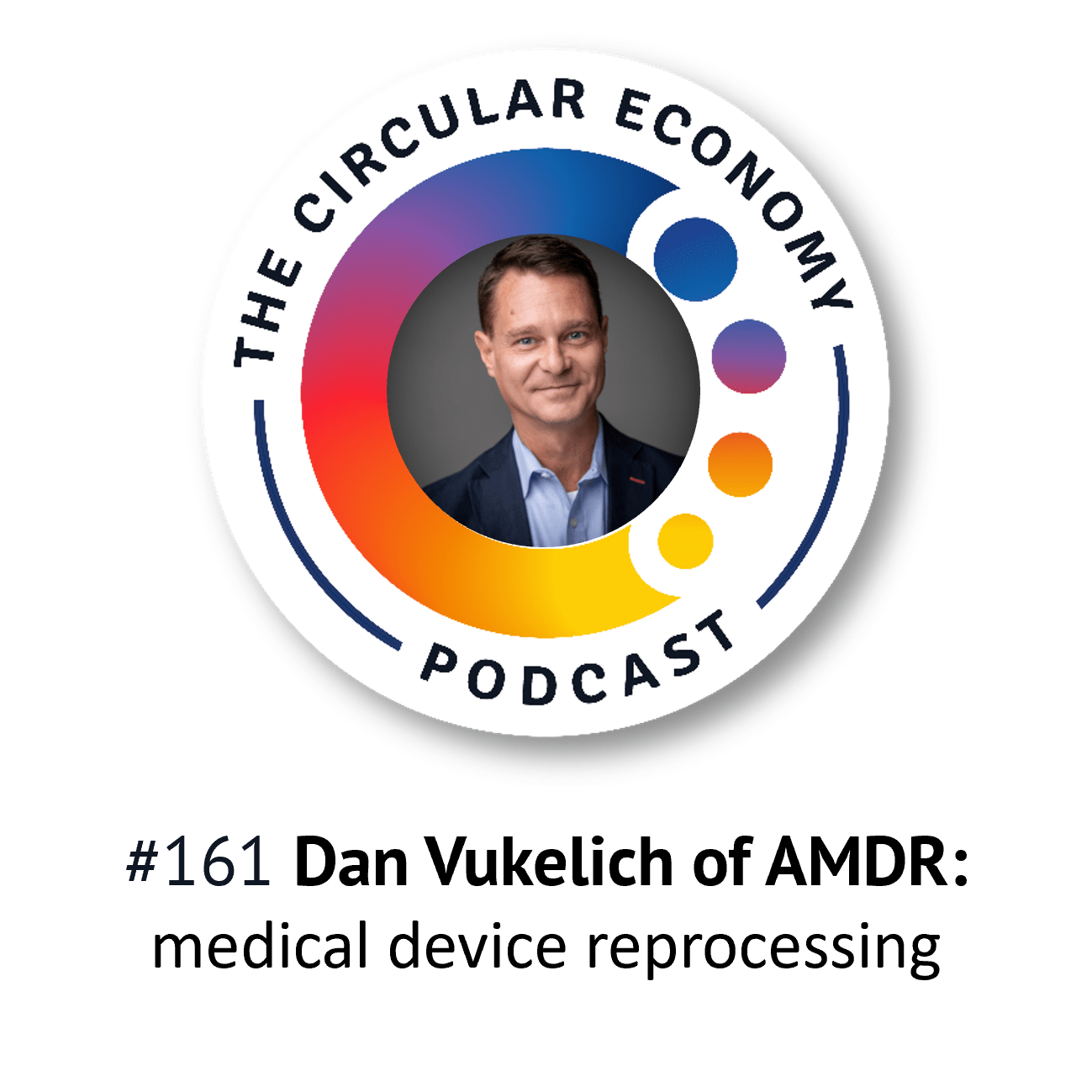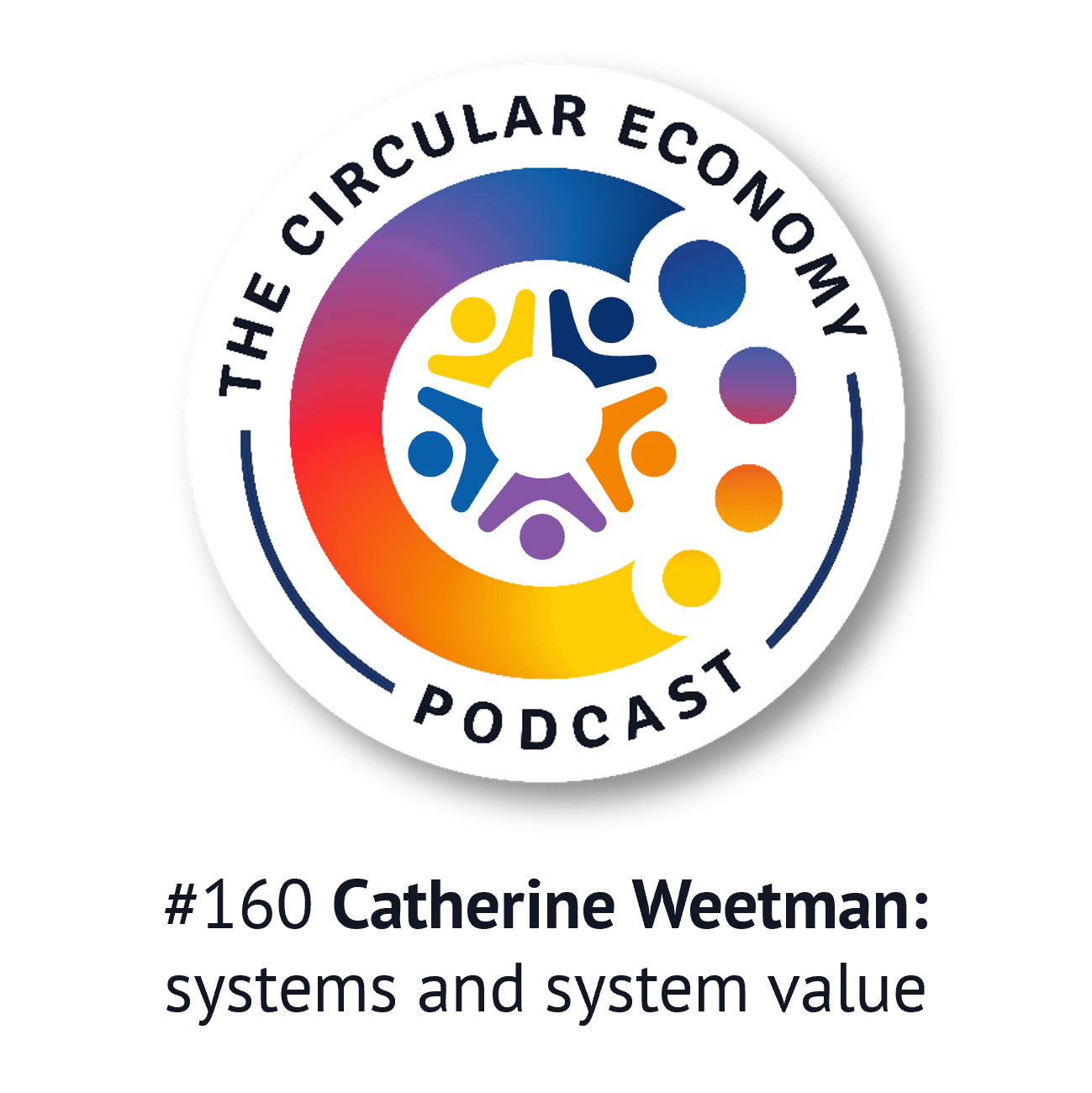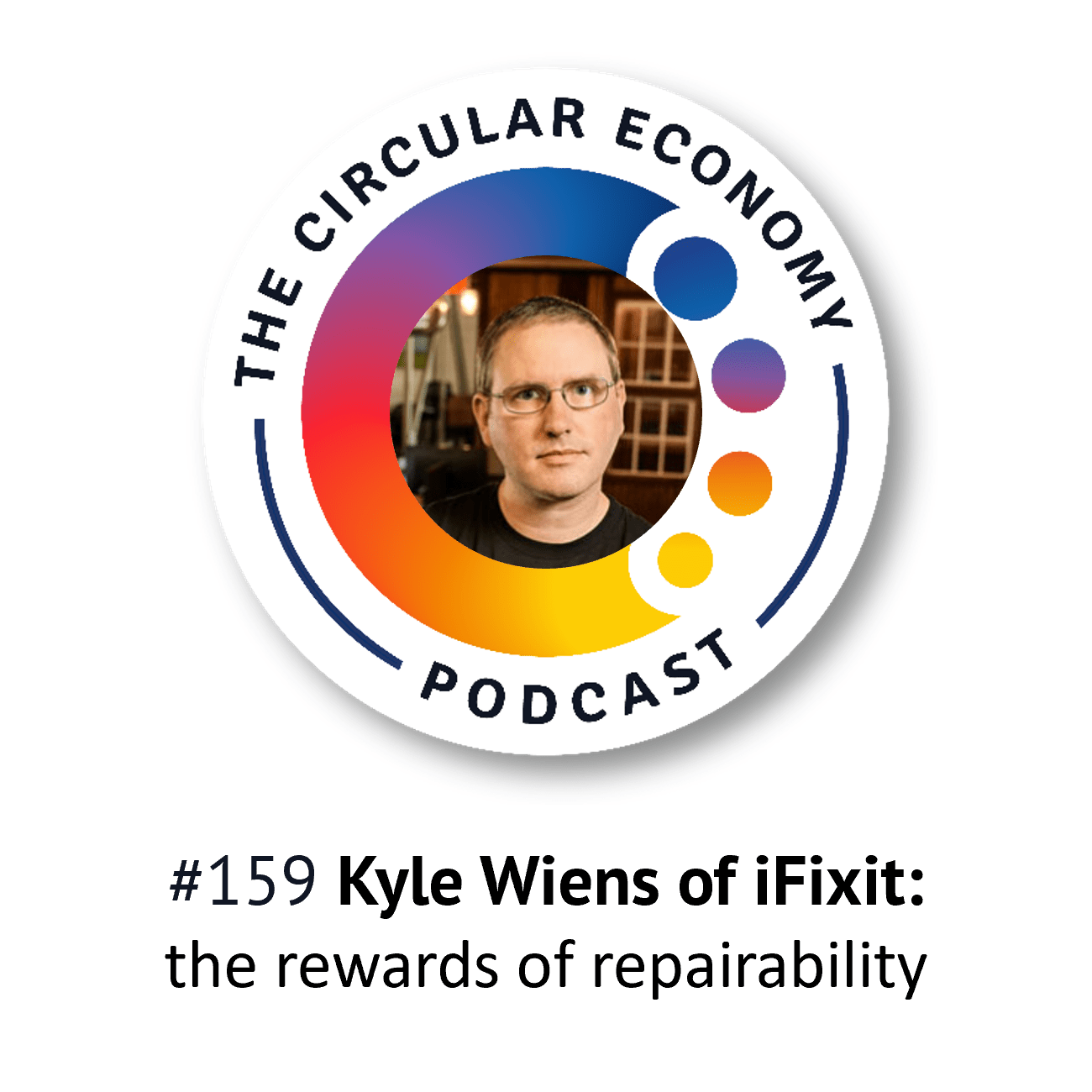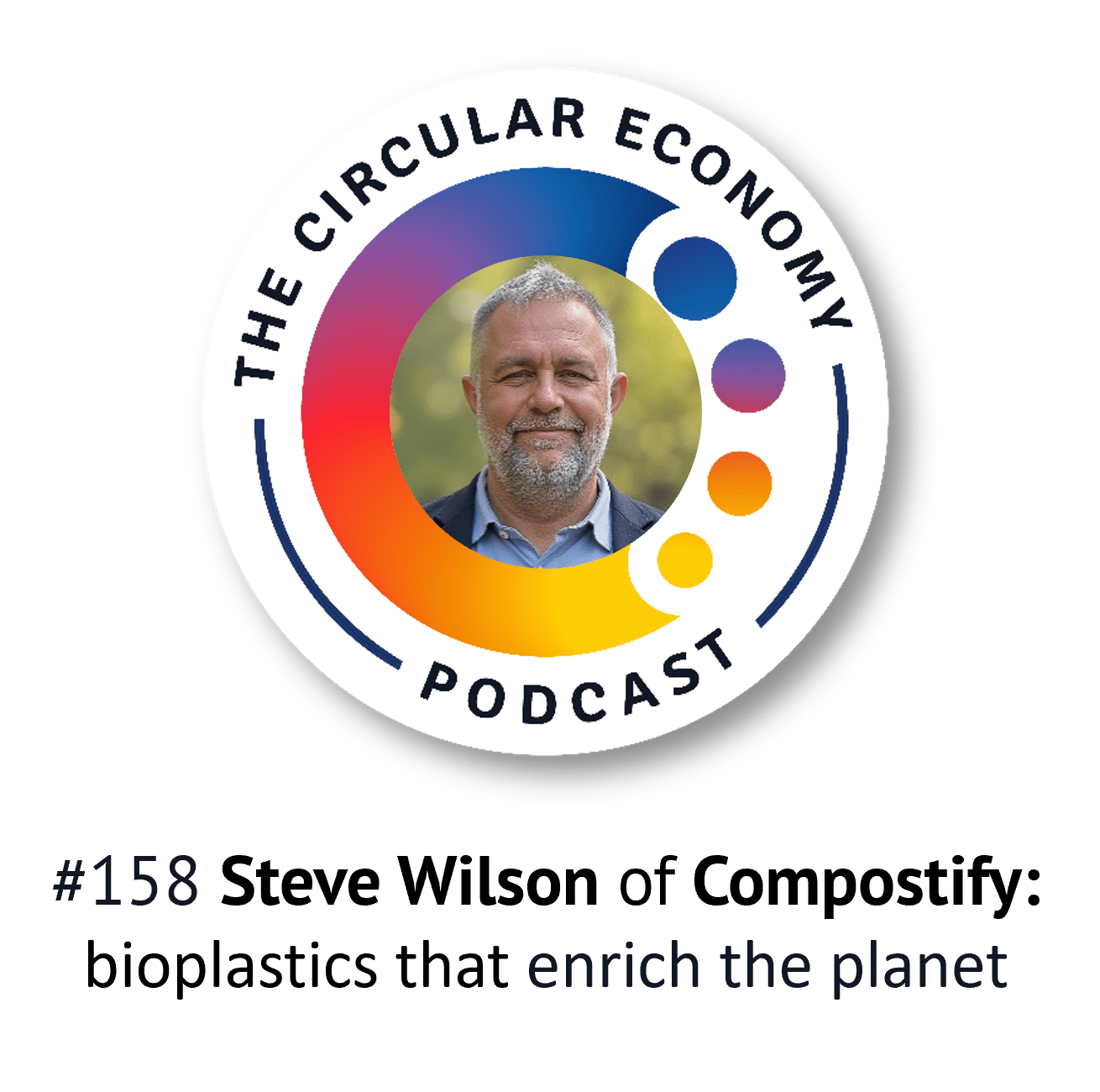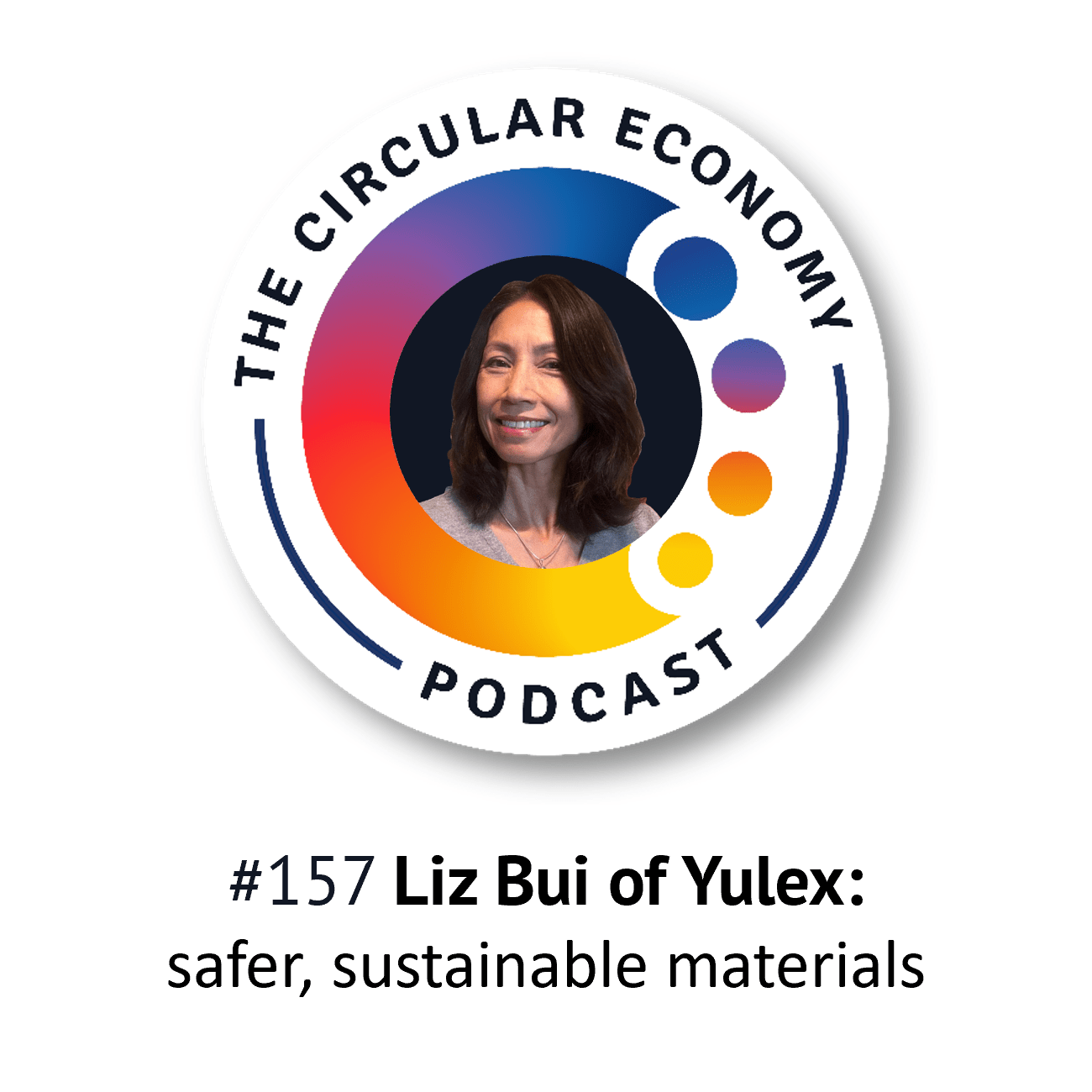Podcast: Play in new window | Download
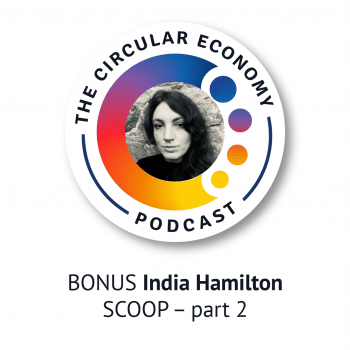
India Hamilton shares more about circular economy food coop SCOOP, Permaculture, membership models, and why she loves compliance officers.
Catherine and India also discuss the importance of supporting your local food economy, and how monopolies and exploitative capitalism are underming this.
Podcast host Catherine Weetman is a circular economy business advisor, workshop facilitator, speaker and writer. Her award-winning book: A Circular Economy Handbook: How to Build a More Resilient, Competitive and Sustainable Business includes lots of practical examples and tips on getting started. Catherine founded Rethink Global in 2013, to help businesses use circular, sustainable approaches to build a better business (and a better world).
Stay in touch for free insights and updates…
Don’t forget, you can subscribe to the podcast series on iTunes, Google Podcasts, PlayerFM, Spotify, TuneIn, or search for “circular economy” in your favourite podcast app. Stay in touch to get free insights and updates, direct to your inbox…
You can also use our interactive, searchable podcast index to find episodes by sector, by region or by circular strategy. Plus, there is now a regular Circular Economy Podcast newsletter, so you get the latest episode show notes and links delivered to your inbox on Sunday morning, each fortnight. The newsletter includes a link to the episode page on our website, with an audio player. You can subscribe by clicking this link to update your preferences.
Links we mention in the episode:
- A Circular Economy Handbook: How to Build a More Resilient, Competitive and Sustainable Business – buy from any good bookseller, or direct from the publisher Kogan Page, which ships worldwide (free shipping to UK and US) and you can use discount code CIRCL20 to get 20% off. It’s available in paperback, ebook and Kindle. If you buy it from online sources, make sure you choose the new edition with an orange cover!
- Sign up to get the podcast player and shownotes for each new episode emailed to your inbox
- India Hamilton on LinkedIn https://www.linkedin.com/in/india-hamilton-53a15a76/
- SCOOP www.scoop.org.je
- India’s own website bit.ly/tasteofcarbon
- Didi Pershouse – author, educator, and soil sponge strategist committed to building healthy communities both above and below ground. Founder of the Land and Leadership Initiative https://www.didipershouse.com
- Dr Christine Jones talking about the soil biome and how bacteria recognise each other https://fibershed.org/podcast/soil-to-soil-podcast-ep-7-why-soil-is-a-living-being-with-dr-christine-jones/
- Circular Economy Podcast Episode 58 Elis Joudalova – OLIO https://www.rethinkglobal.info/episode-58-elis-joudalova-olio/
- Slow Food UK https://www.slowfood.org.uk/
About India Hamilton
Co-Founder of SCOOP, India has worked on food businesses since 2012, and has an MA in Food and Development. She was Director of an award-winning social arts catering organisation for 3 years, where she fed over 26,000 people. She is currently a PGR at Glasgow University and has recently co-founded the community group Jersey Food Systems Lab.
India is a NED for Really Regenerative Centre and on the founding team of the Scotland Transition Lab. She is a regular author for QUOTA.media.
Interview Transcript
Provided by AI
Catherine Weetman 00:00
Did you enjoy listening to Episode 85, with India Hamilton about SCOOP the circular economy food cooperative? Well, here’s the rest of our conversation as a bonus episode. Hello, and welcome to the circular economy podcast, where we explore how circular regenerative and fair solutions are better for people planet, and prosperity. I’m Catherine Weetman, everything global. And I’ll be chatting with those people making the circular economy happen. rethinking how we design, make a news, everything we’ll hear from entrepreneurs and business owners, social enterprises and leading thinkers. You’ll find the show notes, links and transcripts at Circular Economy podcast.com where you can subscribe to updates and our monthly edition of circular insights.
Catherine Weetman 01:03
Hello, welcome to this bonus episode. With all the interesting bits I couldn’t fit into Episode 85. And thank you as always for listening. In Episode 85, we heard from India Hamilton, the co founder of SCOOP, a circular economy Food Cooperative on the island of Jersey. Our conversation covered a wide range of topics, some practical and some philosophical, there was too much to fit into one episode. So here’s the rest of our conversation as a bonus. In the second part, we talk about the context that led India to cocreate SCOOP and its founding principles. India tells us about Jersey’s key crops, its history, and the current challenges for farmers. And how she realised permaculture principles could unlock those challenges. We talk about membership models and loyalty, contrasting SCOOPs model with things like Amazon Prime. We discussed the challenges of regulations for small businesses, and why India loves compliance officers. We explore why it’s important to support your local economy, and how exploitative capitalism is undermining that. Have a listen. And I’ll be back afterwards for a quick reflection on what I took away from our conversation. We start with India explaining that jersey focuses on four main foods for export. And yet farmers grow a much wider variety of crops.
India Hamilton 02:33
There’s a commercially there’s the big four on Jersey, and that’s oysters, dairy, potatoes, and now cannabis, which is emerging market. These are these are commercially driven, economically focused strategies by the government. And they’ve been through a process of diversification. But when we did our research, we found that there was a group of farmers who weren’t part of that island strategy, who between them regrowing 120 different crop varieties and working in a completely different way. They’ve lost their subsidies in 2014. In terms of if you’re organic associated, and we just kind of thought of a week just imagine, imagine something different around how many crops we could be eating. And just Yeah, it was it was very easy to imagine the most stunning shop, working with these particular farmers. That, that just beautiful places to be. and translating that into a space of collective community felt the right thing to do.
Catherine Weetman 03:48
Yeah. And just just to come back to one word that you use, just again, to help clarify things for the audience. You mentioned traditional farming, which is a term I see used a few times and I always want to correct it to industrial farming, because, you know, that tradition of industrialising farming and specialising in mono crops and things like that only really goes back to the 1950s, you know, 70 years ago. So perhaps we should reclaim that traditional word for for the kind of, you know, the, the more the lower impact and more regenerative.
India Hamilton 04:34
You’re absolutely. There’s no, there’s no question. And one of the bits of kind of connectivity that I did with the land when I got back was I went to a bit of building which is the third oldest building in the world. And it was built by 6000 years ago, and it’s called Hu B. And it’s a big mound with a crypt on top with a 20 foot tunnel. And you go during the equinox, and you climb through that tunnel, and you sit, you’re sort of crouch. And during sunrise, the light comes in, and it comes through that tunnel, and it lands on the house. And it is, I mean, it’s a big clock to say, Come on, now it’s time to get planting. But the innovations that have happened in Jersey historically, before the Industrial Age model, are profound. And as a result of a deep relationship with the land. But also, really progressively innovative. There was a there’s learning about carnal Akuti in 1835, who wrote a book about seed selection, and had a relationship with Darwin. And these are farming practices of farming stories that aren’t part of our narrative. Apple cider started here and the amount of time started here. And the salt cod, there’s a whole area called Le canovee, which is a school which means cannabis in Jersey, French, because they were the right makers for the shipbuilding. Right. So the the trade and the kind of innovation around agriculture. I don’t think as a people we have, we have cleaned the narrative. Beyond the commercial concept. The the role that the debt, the Jersey cow has played internationally, has been quite a phenomenal story as that tiny, high yielding, gentle cow. So yeah, it’s a very, it’s a very complex history very, very long. And when you start reclaiming that indigenous practice, of working with the land and the light, the whole potential opens up.
Catherine Weetman 07:05
Yeah, and I think there are lots of things happening in permaculture projects and so on around the world, trying to bring those kinds of practices back to all sorts of communities where the commercial narrative has taken over. And they’ve been encouraged to monocrop and so on. And then, of course, and use fertilisers and pesticides, and now the soil so degraded, that they’re unable to earn a living from it. But permaculture and agroforestry, and, you know, regenerative farming, and some of those things are starting to bring back the polyculture approach. And to, you know, find find ways to support local food and local businesses, you know, that help keep the communities going. So yeah, India, I’m really, you know, you, you mentioned Hyderabad and looking at the food systems out there, but, you know, what, what led you to this in the first place when, you know, when did this spark kind of light up.
India Hamilton 08:13
And I’ve had, I’ve got a deep empathy for caring about how others eat, more so than myself a lot of the time. So it was very clear that that was the path I was going to take at some point. But it’s never about commercial, it’s always about about, about telling, telling a story around food. And I went to her to Hyderabad. And I’m actually just going to explain why I came back different, essentially, because it was a permaculture project out there with high biodiversity that was was attempting to show economic opportunity within the city. So other people can go viable, it can be viable. So this was a market led concept. And Permaculture is absolutely strategic on the land, about interrelations and about about complex strategies that How have things come together and work with each other. And what whilst I was out there, I think, to myself, and we were building this project, where what we were doing is we were building a permaculture supply chain. And we will, we turned and looked at the people and look to the city and the opportunities and the processes and the activities that happened in the same way in the kind of supply chain and the mark opportunities in the same way you see with permaculture. And what emerged from that was, was the importance of essentially the circular economy and the importance of circular systems. And so it’s very much inspired by the Have these two worlds, permaculture and circular economy are really, really married actually. And so much of our conversation is that telling the farmer how to change and telling the consumer how to change. But we’ve got no real conversation about how we really changed the shape or the function of that supply chain. So this was going back. And for me, this is 2017. And I learned in India, that you can actually really redesign that in circular ways, creating lots of different newly formed supply chain relationships, and community relationships that work with one another. And that really made me think that almost I will never tell a farmer what to do. And I’d never tell the consumer what to do, I’ll just create conditions in the middle, that both make it easy for them to function. Well like maximum positive impact, that is part of the circular economy and a part of the permaculture concept. So these things were sort of marrying. And we were making $12,000 a week off 20 acres, when this was really starting to happen. And so I was sold by this, I was sold by the the, this, this complex strategy at small scale being highly impactful. And I got back to London, I saw a billboard saying the future is vegan, I was like, the future is complex. And I’m going to Jersey, because I need to go and I’m gonna go home. And I understand what this means when the supply chain is what needs to be addressed, not people, not farmers, the supply chain, the bits in the middle, the reinvention of the conditions of the market. And that’s very much London felt London value was on a hard journey into selling more products, that sustainability would be sold by products. And I just felt from this was very much in the cheffing sector this, this was happening, lots of vegan based movements. And I just thought I’d step back from that and go home and look at the land that I sort of grew up in. And and test this idea really. And that’s five years later. I still here.
Catherine Weetman 12:38
India and I move on to talk about membership models. In episode 85. India explains how SCOOPs membership model works with a membership fee that rewards subscribers with a discount. India talks about the research they did with consumers to get clear on what people wanted from SCOOP. time pressures came up as one of the issues stopping people from going say, to a farm shop instead of the supermarket. That sparks our discussion about some of the wider aspects of convenience and membership models, including Amazon’s prime service. And I guess, I guess, also to use to use an example that I hate to use. But thinking about Amazon’s prime model, you know, where you pay your Prime membership, and then you get free deliveries. So I guess also people have then got the thought that they’re paying this membership. So therefore, they need to get ongoing value out of it. It kind of keeps them connected with you. And reminds them that you know they’ve got the membership so if they buy from your shop instead of supermarket there’s a 25% discount. So it’s so it’s it’s kind of it’s fulfilling several purposes, isn’t it?
India Hamilton 13:59
Yeah, I think it’s it’s it’s part of creating that ongoing relationship. I think the the Amazon model, it is about accepting heat, you know that that strategy is accepting that deliveries they make money and how to how to find and how to find regular supply, you know, regularly regular income streams and a very and manage and control the market and so be able to control investment in and share value. them I think it’s it’s an it’s a deep acceptance that the home delivery model is a highly expensive and unproblematic for many, many people. So capturing that and creating these solid revenue streams. It is a means to stabilise their business. And so I think it’s actually deeper and more sophisticated than this need to remind you to come back. I think without it, they wouldn’t have the whole they have, because of the because of the because of the fragility of home delivery. And what we found is that farmers shops that will link to the land, had their own deep fragility, because of the supermarket’s in the area. So that we believe that we they needed protecting so Amazon think that they need protecting, and the what need protecting is that hyper convenience for the consumer needs protecting, I’m sure they believe that from a position of, of morality than anything else that we believe that those farmers need to protecting. So we had to think very deeply about how to create the relationships, that actually when you ask someone in the community, how would you feel if if those shops disappeared, they wouldn’t want that. So this is about building this kind of these, these support networks and structures, that means that they will still be there. And they can flourish and grow within this system. It’s a bit deeper, the the, the kind of taking your point a bit further, really around. Why that membership is there?
Catherine Weetman 16:31
Yeah, and I think, you know, raises some really interesting questions, doesn’t it about how you how you create the sense of community, and as you said, that people are paying the subscription. So if they do end up shopping at the supermarket this week, they still know they’re supporting the cause that they believe in and they’re still in some way, keeping the thing thing going, and they’re still connected to you. In Episode 85, India described the circular and reusable packaging systems they’ve developed a SCOOP, including glass bottles and jars, Tiffin boxes, and so on. The glass containers are used to package up the products that SCOOP is developed to make good use of seasonal produce. For example, kimchi soups and sauces. India explains how SCOOP was created cost effective ways of cleaning that packaging, and making sure it meets high health and safety standards. But the sustainable container probably isn’t really sustainable. It’s probably still made from, you know, not
India Hamilton 17:40
going to unpick that. Okay. Yeah, just looking at it at a price level. And glasses an issue on the island, we’re now circulating, plus, we’re cleaning it, the Environmental Health is safe, and we’ve done it buying secondhand equipment. So secondhand cleaning, cleaning systems, and kitchens and, and so we every element is looking from a sector perspective. You can see when these products come to the end of their life, these kind of fridges and stuff, but essentially, we try to show that as small as you are with as little money, you can invest in a circular system off going to a secondhand dealers. And nothing in there is anything more than what you’d buy for a kitchen anyway. It’s just rethought. Yeah. And I was really conscious that that, that it wasn’t about buying anything new and the new products, the new system, it was oh, this can happen here. And but you have to take compliance really seriously. And you’ve got to write the house app. And you’ve got to look at the risk assess. And that’s, that’s really, really interesting. I love compliance officers. And I mean that, yeah, we want to like we’re always, by the time they leave, it’s like in three hours. And we’re always wanting to talk more. Because it’s so fascinating as you start to unearth this idea that compliance officers are part of progress and how they are, how they need to move forward with you. And their needs. And you know,
Catherine Weetman 19:41
yeah, and their needs, which just reflect the needs of wider society to have access to food that’s not going to give them you know, food poisoning or whatever. Yeah,
India Hamilton 19:51
one of my favourite things to say, just to kind of like, really break down this idea that it can be done because look, there’s lots of have this idea that there’s composting issues and the dangers of circular food systems are real. And I’m like, somewhere, somehow someone got an approval to blow up a nuclear bomb, we can definitely, definitely circulate this food. Like, we can do it. And that is just saying that in a meeting, you firstly, they look a bit shocked, but then they go, huh? Yeah, we can. Like, it’s just kind of owning those decisions around being able to say compliance is about working things out.
Catherine Weetman 20:37
Yeah, yeah, and having structured processes and routines that people follow. And, and I guess, people understanding what the critical aspects are, like, you know, this temperature to sterilise or, you know, whatever it is, I went to a workshop on reducing food waste from from a, you know, household point of view, with the sustainable Restaurant Association, and there was a chef there, offering some brilliant tips on you know, how to make sure you’re not going to get botulism and things and kind of talking about the use of heat that, you know, if you, if you’re thinking your homeless might be a couple of days older than it should be, turn it into a hot sauce, you know, make sure it gets up to a steady simmer and so on. And then then you’ve killed off any, any bugs. So those kinds of tips that, you know, can help help reduce.
India Hamilton 21:34
Yeah, it’s amazing that you know, we live in this kind of ultra sterile environment. Without this, without this belief that we are part of this kind of massive web of life and be in a these kind of these biological relationships that are key to our existence. Obviously, we’re very threatened by we’re told to be incredibly sterile. And I’ve always felt quite uncertain. I don’t know, it’s, it’s really it’s a really complicated conversation, to start to open the fact that what what a fertile process can look like, over a sterile process. Yeah, that you if they’re the if they’re the kind of opposites of the system. Yeah, I think it’s, it’s quite spectacular.
Catherine Weetman 22:40
Ya know, kind
India Hamilton 22:42
of dichotomy.
Catherine Weetman 22:43
I agree. And I find it fascinating. But I won’t, I won’t get tempted to share. Maybe afterwards, I’ll have a look for the the podcast I’m thinking about, which was all about regenerative agriculture, and then talking about the human biome. And some really fascinating stuff on that to possibly
India Hamilton 23:02
Didi Pershouse talks about this most eloquently. So that someone could Didi Pershouse talks about it.
Catherine Weetman 23:13
That wasn’t the person, I don’t think but I’m gonna get to look that up afterwards. In the last part of our conversation, we talked about the cost of living crisis, and how supermarkets have subsidised the cost of online deliveries, making it very difficult for smaller, independent local retailers and producers to compete with that,
India Hamilton 23:36
you know, is the cost of living in the supermarkets going up because also there’s been a massive transition for this food supply chain to do more of the work. And that’s in the kind of the geopolitics of this conversation. I think that’s that part of it has been really left out. So it is a it is a discussion of the time and it, you know, reflection of you as a consumer, but that’s a nice word or the right word. But just asking of your retailer. Is this model working for you? And is there financially something I can do to help bring prices down? Why not?
Catherine Weetman 24:23
Yeah. retailer, I guess you’re thinking local retailer not not have that conversation with your supermarket?
India Hamilton 24:32
Well, if I know, like, yeah, probably just a local retailer, if it says, you know, is it more helpful for me to pick up? I think that’s, you know, asking to be supportive. But again, I kind of want to ask the people, the big retailers, is this really is really working. You just have to look at the shirt, the shares of the Cardo just alum pick those and how They make money and stuff. Yeah. Interesting.
Catherine Weetman 25:01
Yeah, I think I think it is interesting. And it’s, it’s, you know, we’re seeing the same thing, not to kind of drift off the subject, but seeing the same thing with the food to go, delivery models UberEATS and just eat and all the others, you know, none of them are making a profit. They’re all just going for market domination through the deep pockets of their investors. And, you know, then, after that, it’s to use that phrase test khopoli You know, once you’ve got a monopoly, then you can charge charge what you like. I loved the starting point for India’s route into this, learning from the projects you worked on in Hyderabad, designing a permaculture supply chain, and then the serendipitous meeting with the artists community. In the main episode, we discussed what we might call the convenience paradox. You might remember in his research and thinking about the true meaning of convenience, we’ve been led to believe it’s all about speed, rather than the true definition to do something with ease. When we take time to think about what we really need what we really want to do. For many people, there are several layers of motivations, going deeper than the basics of price, functionality, and so on. For food at a basic level, we might be thinking about macronutrients, protein, carbohydrates, fat, and energy in the form of calories. We probably want to choose food that tastes good. And then there are other layers of needs, the deeper value we want to get from our food. Many of us want to buy local, seasonal, fresh and nutritious food that’s been grown without pesticides and fossil fertilisers. And that provides a fair wage to farmers and everyone else in the supply chain. We want food that’s full of micronutrients to vitamins and minerals, antioxidants, and so on food that will help build up the good bacteria in our gut biome, and protect us against disease and ill health. In the episode, I mentioned a fascinating podcast I’d heard that explain the relationship between soil and our gut biome. I couldn’t remember the name of the scientist. So I checked afterwards. And it’s Dr. Christine Jones on the excellent fibre shed for podcast. I’ve included a link in the show notes. So that’s it for this bonus episode of the circular economy podcast. Thank you to our guest, India Hamilton, co founder of SCOOP, and thank you as always for listening. As usual, you can check out all the links we mentioned in the show notes at Circular Economy podcast.com.
Want to dig deeper?
Why not buy Catherine’s award-winning book, A Circular Economy Handbook: How to Build a More Resilient, Competitive and Sustainable Business. This comprehensive guide uses a bottom-up, practical approach, and includes hundreds of real examples from around the world, to help you really ‘get’ the circular economy. Even better, you’ll be inspired with ideas to make your own business more competitive, resilient and sustainable.
Please let us know what you think of the podcast – and we’d love it if you could leave us a review on iTunes, or wherever you find your podcasts. Or send us an email…
Podcast music
Thanks to Belinda O’Hooley and Heidi Tidow, otherwise known as the brilliant, inventive and generous folk duo, O’Hooley & Tidow for allowing me to use the instrumentals from the live version of Summat’s Brewin’ as music for the podcast. You can find the whole track (inspired by the Copper Family song “Oh Good Ale”) on their album, also called Summat’s Brewin’. Or, follow them on Twitter.
